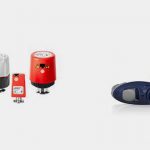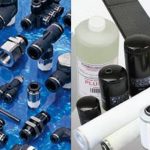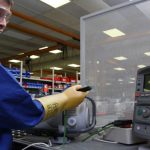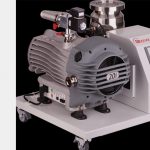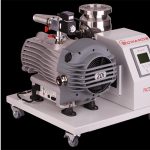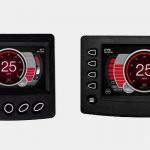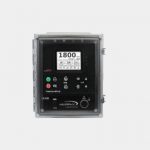It’s been almost a hundred years since aluminum framing revolutionized the world of industrial metal. Since those days, aluminum has allowed new architectural possibilities and industrial functions. At the same time, advanced in coil anodizing have allowed for a wide variety of textures, finishes, and designed that are versatile, functional, and environmentally responsible.
Anodized aluminum can be laser engraved, stamped, roll-formed, perforated, laminated, welded, embossed, silk-screened, and otherwise customized in a mind-boggling variety of ways. Recent breakthroughs in coloring techniques allow aluminum to be created with almost the same variety and richness of color as latex paints. Anodized aluminum appears in roofing, architectural exteriors, doors, window frames, fixtures, and of course in a huge variety of industrial applications.
Why Anodized?
Anodized aluminum is aluminum that has undergone an electrochemical conversion — an electrically charged solution alters the chemical structure of the aluminum. The surface layer of the aluminum is oxidized — which, if it were steel, would mean rusting, but aluminum works quite differently. Aluminum oxide isn’t at all like rust; instead, it’s a hard, protective layer that adheres better to paint or other coatings and can absorb dyes as well.
Industrial Applications
Anodized aluminum is 1/3rd the weight of stainless steel while maintaining the same approximate hardness and resistance to the elements. That makes it absolutely ideal for a huge variety of framework applications. Whether you need a tiny little clip to hold a heat sink onto a microprocessor or you’re building a superstructure that will hold a conveyor belt cleaner under the terminus of an industrial coal conveyor, anodized aluminum framing is always a good choice for the job.
Anodized aluminum is the functional, versatile, and environmentally responsible choice for industrial applications. Strong, corrosion-resistant, and easy to maintain, anodized aluminum does not chip, flake, peel, or lose color. Continuous-coil anodizing technology allows the creation of pieces featuring uniform color, surface and edge consistency, and even colors that imitate natural materials without degrading. Coil anodized aluminum framing can get the job done — all you need to do is figure out what exactly you need and which fabricator is the best one to get your job done right.












